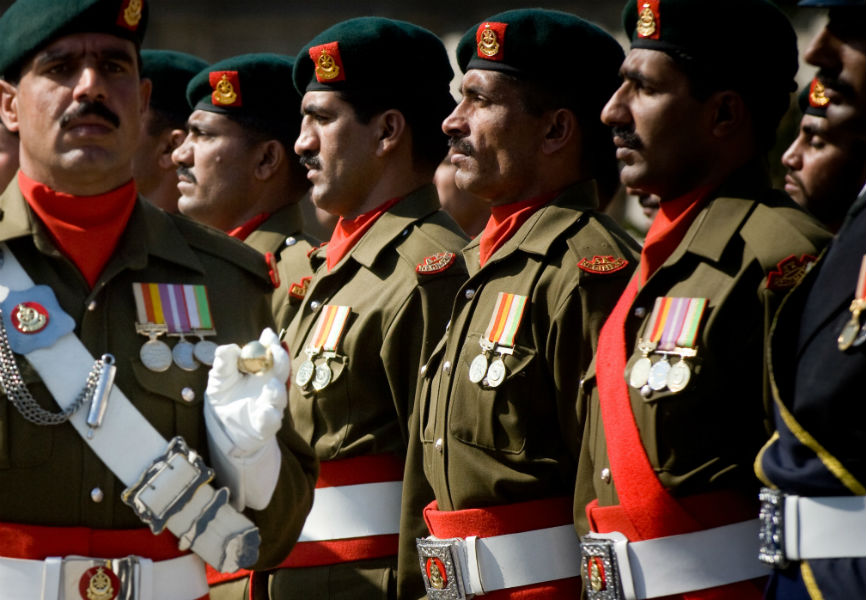This week's announcement that President Donald Trump's administration has canceled a $300 million disbursement to the Pakistani military, coupled with high level visits by administration officials to Pakistan and India, has reinforced the impression that the US is shifting away from its traditional approach to South Asia. Eurasia Group analyst Shailesh Kumar explains the dynamics at play.
Does the cut in aid represent a fundamental break in US-Pakistani relations?
The decision to cancel the payment of a $300 million tranche of Coalition Support Funds was first flagged several months ago. Each tranche is released after the Pentagon certifies that Pakistan is fulfilling its commitments to fight terrorism. Technically, the Pentagon could decide to never approve any further payments, and since there is no timetable for when it needs to do so, the decision would go largely unnoticed. But this week the administration sought approval to re-appropriate the $300 million, clearly signaling that the US has no plans to give the money to Pakistan.
It is the latest in a series of moves by Washington showcasing the ongoing pivot in US foreign policy toward the region. This includes a new South Asia policy unveiled last August that labeled Pakistan a “destabilizer” (but fell short of declaring it state sponsor of terror), the elimination of a subsidy for the purchase of F-16s, and efforts to add Pakistan to the Financial Action Task Force (FATF) gray list for tracking illicit financing. There has been a stark reversal of fortunes in the bilateral relationship, considering the US once threatened to attack India on Pakistan's behalf during the 1971 war between the two countries, routed all its intelligence and arms shipments to Afghanistan through Pakistan in the 1980s, and declared Islamabad a non-NATO ally in the 2000s.
How has Pakistan responded?
The Pakistani government has noted that the Coalition Support Funds are not aid, but reimbursements for costs borne by the Pakistani army (and taxpayer), which is largely correct. Following the attacks of 11 September, the US government agreed to repay Pakistan for its efforts in the war on terror. However, money is fungible, and it is nearly impossible to determine how much of the army's expenses are for fighting terrorists in Afghanistan (and the broader region), versus, for example, building up offensive capabilities against India. From Pakistan's perspective it is entitled to the money for helping to fight the US's battles. Economically, the cancelation of aid will be of little consequence. Last year's larger reduction affected the country's fiscal deficit target, but the loss of $300 million will have a much smaller impact. But the move substantiates a view among Pakistani officials that the US cannot be trusted, especially as it came days before US Secretary of State Pompeo arrived in Islamabad. To many, it was not a coincidence but seen as a tactic by the US to punish, pressure, and embarrass Pakistan's new government.
Does this move signal a significant improvement in US relations with India?
The aid should first and foremost be seen as a bilateral issue between the US and Pakistan. However, it is also true that India has for years lobbied the US on its view that rather than supporting the war on terror, Pakistan has been a major sponsor of terror. Former president Barack Obama's administration publicly shifted in this direction when it stated that Pakistan needed to stop differentiating between “bad terrorists” and “good terrorists”—that is, those who attack India. However, India remained concerned because the money kept flowing, assistance that disincentivized Pakistan from changing its behavior and helped it purchase weapons that could be used against India. Accordingly, even though the aid reduction is intended to signal the US's displeasure with Pakistan, it also highlights increased alignment with India. Notably, right after the aid decision, and Secretary of State Pompeo's visit to Pakistan, he and Defense Secretary James Mattis traveled to New Delhi for the inaugural “2+2 Dialogue” with their Indian counterparts, where they will discuss how the US and India can deepen their defense cooperation. The high-profile meeting, coupled with the US's declaration of India as a regional power, marks a reversal of past US policy, which sought strategic equivalence between India and Pakistan.
Pakistan has been moving closer to China in recent years—will Trump's move accelerate that trend?
The decision will have little impact. Beijing is Pakistan's most important economic partner given the amount of money it is willing to invest there. Diplomatically, China is one of the few countries that always backs Pakistan in multilateral forums. And strategically, Pakistan sees China as a hedge against India. It is important to note that throughout Pakistan's history, it has always had a benefactor nation. For a long time, that was the US. But China has taken the benefactor relationship to a whole new level. Within Pakistani civil society, China is admired and deemed to have Pakistan's best interests in mind, while offering unconditional support. Thus, unless the US is willing to invest upward of the $60 billion China is investing Pakistan and offer the type of support it provided in the 1960s, 1970s, and 1980s, closer Pakistan-China ties are a foregone conclusion.

 US Department of Defense
US Department of Defense